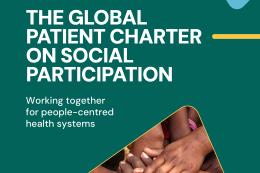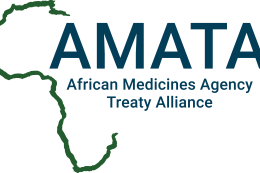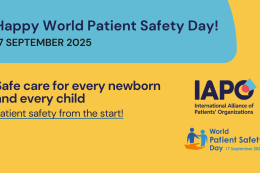WHA78: a historic World Health Assembly

The 78th World Health Assembly (WHA78), held from 19 to 27 May 2025 in Geneva under the theme “One World for Health,” represents a historic milestone in global health diplomacy and governance.
One of the key outcomes was the adoption of the first-ever WHO Pandemic Agreement after over three years of negotiation. The Agreement has been hailed as a once-in-a-generation opportunity to strengthen global preparedness, cooperation and coordination, while ensuring equitable access in the face of future health emergencies.
With nearly 60% of new health emergencies being climate-related, WHO’s work in this area was prominently featured. The Assembly approved the WHO's Climate Change and Health Action Plan, which aims to mitigate the health impacts of environmental crises.
Yet, while the atmosphere at WHA78 was marked by moments of solidarity and achievement, the meeting also unfolded amid a complex and turbulent global landscape. The financial fragility of the World Health Organization, exacerbated by donor aid reductions and the withdrawal of U.S. funding, cast a shadow over the proceedings. Despite Member States approving a second 20% increase in assessed contributions and pledging over US$ 210 million to WHO’s Investment Round, WHO continues to face a significant funding gap.
The broader context of global health remains characterised by geopolitical tensions, shifting alliances, and pressing humanitarian crises, from the health impacts of climate-related emergencies to conflicts in Ukraine and the occupied Palestinian territory. The WHA’s deliberations reflected these realities, striking a balance between ambitious commitments and pragmatic assessments of capacity and resilience.
IAPO highlights and landmark resolutions
During WHA78, IAPO worked to amplify the voice of patients across multiple global health discussions by delivering and joining several statements on key agenda items, such as:
-
Universal health coverage
-
Substandard and falsified medical products (on behalf of AMATA and as part of The Fight the Fakes Alliance)
-
Follow-up to the Political Declaration of the Third High-Level Meeting on NCDs
-
Climate change and health
WHA78 considered approximately 75 agenda items and sub-items across all areas of health and adopted several landmark resolutions. Below are some of the key resolutions where IAPO actively engaged or supported their adoption:
-
Strengthening Global Health Financing: Member States recognised the critical need for increased and sustained investment in health, with a resolution addressing the global health financing crisis.
-
Save the Children and IAPO co-led a constituency statement on universal health coverage with a special focus on sustainable health financing and social participation for health.
-
-
Rare Diseases: Member States passed a groundbreaking resolution to improve care and protection for over 300 million people living with one of the more than 7000 rare diseases.
-
IAPO is part of the Coalition in Support of the WHA Resolution on Rare Diseases, led by the patient organisation Rare Diseases International, and supported the open letter sent to the WHO Director-General, emphasising the need for a Global Action Plan on Rare Diseases.
-
-
Skin diseases: Member States adopted a resolution recognising skin diseases as a significant public health concern, calling for increased awareness, research, and integration of skin health into universal health coverage strategies.
-
IAPO is part of the World Skin Health Coalition, led by the IAPO member GlobalSkin, which played a fundamental role in the development and adoption of this resolution.
-
-
Public Health and Social Measures (PHSM): Member States adopted a decision to strengthen research on the effectiveness of PHSMs, such as mask-wearing and social distancing, ensuring future outbreak responses are evidence-based.
-
IAPO joined the panel of the WHA78 informal pre-meeting on the draft resolution Strengthening the evidence base for public health and social measures, alongside representatives from WHO and the Centre for Epidemic Interventions Research at the Norwegian Institute of Public Health. Moderated by the World Heart Federation, the session provided an opportunity to welcome the resolution and exchange views on the urgent need for stronger evidence to guide PHSM during health emergencies.
-
Additionally, Member States adopted other resolutions and decisions addressing lung and kidney health, air pollution, social connection, digital health, health and care workforce, medical imaging, improving nutrition for mothers and young children, and sensory impairments, among others.
WHA78 also established two new official WHO health campaigns:
Side Events
Following up on conversations held at last year’s Assembly, IAPO co-hosted two side events at the WHA78 Civil Society Networking Space, focusing on social participation for universal health coverage, health and well-being.
19 MayThe first, co-hosted with CSEM, the Civil Society Engagement Mechanism for UHC2030, explored the collaborative role of the global patient organisation community in advancing social participation for universal health coverage, with our recently launched UHC Compass as an accelerator on the ground.

The recording of the side event is available to watch on demand at IAPO's YouTube channel.
21 MayCo-hosted with CSEM, UHC2030, The George Institute for Global Health, Global Health Council, Amref, Save the Children, NCD Alliance and Global Mental Health Action Network (United for Global Mental Health), the second event provided a platform for civil society to reflect on progress and explore opportunities to strengthen the implementation of the WHA77 resolution on social participation, particularly at national and regional levels.
.png)
With the Harvard Medical School Centre for Primary Care and Gilead Sciences, IAPO co-hosted a powerful art and storytelling exhibition where IAPO members Side by Side for Life Institute, Crohn's & Colitis Society of Singapore and Greek Patients Association, and our partner organisation EUPATI, contributed among several other organisations with table settings representing people-centred healthcare.

You can watch a short clip about the art and storytelling side event "A Seat at the Table" here.
22 May
In support of AMATA – the African Medicines Agency Treaty Alliance – and the patient safety agenda, we co-hosted an official side event inside the UN Palais des Nations with US Pharmacopeia, International Pharmaceutical Students' Federation and IFPMA. Despite the urgency of this global health crisis, during WHA78, Member States postponed proposed reforms to the Member State Mechanism on Substandard and Falsified Medical Products until at least the end of 2025, delaying any implementation of changes until May 2026. This decision comes despite multiple warnings from patient advocates, health experts and WHO officials about the escalating global threat posed by falsified and substandard medicines, estimated to contribute to over one million deaths annually. During the side event, IAPO was one of the voices advocating for immediate action, emphasising the importance of involving patients and civil society in tackling this crisis and calling for greater global attention to ensure medicine safety and public trust in healthcare systems worldwide.
Learn more at the Health Policy Watch article here.

Through strategic engagement and collaboration, we highlighted the essential role of patient organisations in shaping equitable health policies worldwide. The IAPO delegation also engaged in important commitments, such as:
- In-person meeting with Dr Blerta Maliqi, Unit Head for Patient Safety and Quality of Care at the World Health Organization, alongside Dr Irina Papieva and Ayda Taha, IAPO’s Designated Technical Officer. The discussion focused on advancing the next steps of IAPO’s 2025-2027 Collaboration Plan as a Non-State Actor in official relations with WHO, reinforcing our shared commitment to patient safety, quality care and equitable health systems worldwide.
- Breakfast meeting with the WHO Civil Society Commission, of which IAPO is a member, where we strengthened our connections with several organisations working together to improve the relationship between civil society and the WHO.
Final remarks
While WHA78 will be remembered for its historic achievements – for WHO, IAPO and our patient organisation community – the Assembly also highlighted the stark challenges facing the global health community. The resolutions and decisions adopted offer a blueprint for advancing health equity and security, but these must be implemented amid financial constraints, geopolitical tensions, and the escalating health impacts of climate change.
Whether these commitments can be translated into effective action will depend on sustained political will, resource mobilisation, and global solidarity in an increasingly fragmented world. IAPO stands together with Member States, WHO and civil society to continue advocating for safe, effective, equitable and people-centred health systems that leave no one behind.
Main photo credit: WHO / Pierre Albouy



